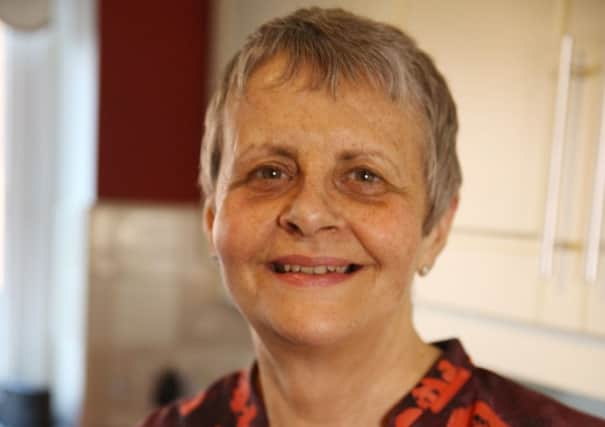Alzheimer’s breakthrough: New drug could slow down disease


Researchers revealed the the promising results of studies into the use of solanezumab and aducanumab.
Results suggest that if given to patients early enough, the antibody therapies will be able to slow cognitive decline.
Advertisement
Hide AdAdvertisement
Hide AdInterim results from a safety study of Biogen’s aducanumab, in people with very early stage Alzheimer’s disease, show that the drug reduces the amount of the amyloid plaques in the brain, with an increasing effect as the dose increases.


The discovery was announced at the Alzheimer’s Association International conference in Washington DC, USA, which saw studies of three alternative antibody therapies presented.
A York woman who was diagnosed with early onset Alzheimer’s at the age of 58 has said she is “quietly optimistic” about the potential breakthrough.
Wendy Mitchell, now 59, said she was “devastated” to be diagnosed with the disease exactly a year ago in July 2014, and has noticed her memory deteriorate further over the period.
Advertisement
Hide AdAdvertisement
Hide AdThe mother-of-two is currently taking donepezil, which can temporarily alleviate symptoms such as anxiety and memory and concentration problems, but only on a short-term basis.
She said that, while she is not “naive” enough to think that an announcement on the drug solanezumab will necessarily help her, it is good news nonetheless.
“We haven’t had any breakthroughs for 19 years,” she said.
“We’ve been waiting a very long time for a new treatment or development. I’m quietly optimistic but not naive enough to think it will necessarily benefit me.
“The results from the final trials are still 18 months away, and I don’t know what state my brain will be in by then. But the news is really promising and it brings me hope for my daughters and anyone else, as it could bring an end to the inevitably that a diagnosis brings with it.”
Advertisement
Hide AdAdvertisement
Hide AdMs Mitchell, who described herself as living “happily alone”, said she has learned lots of “coping strategies” to help her live with the illness.
The former NHS worker said she went to her GP after noticing problems with her memory.
“I used to have a brilliant memory but my memory started letting me down,” she said.
“I would be in meetings and forget words, or I would forget who people were when I saw them.”
Advertisement
Hide AdAdvertisement
Hide AdMs Mitchell, who took early retirement in March so she could enjoy life while she is still able to, said that although it was tough being diagnosed with a “terminal, debilitating, devastating illness”, it was also a relief to know what was wrong.
She said further research into the condition is important and she is also taking part in a clinical trial with a drug used for treating acne.
But she added: “It’s also really important to remember that social research is important too. Good quality care to help people living with dementia is needed.
“While waiting for a magic cure you have to find ways of providing good quality care for people who are currently living with the disease.”
Advertisement
Hide AdAdvertisement
Hide AdMore than a quarter of people on the higher doses experienced headaches and a third to a half experienced abnormalities on a brain scan.
Long-term analysis of pharmaceutical company Eli Lilly’s solanezumab reports that people with mild Alzheimer’s disease, who have taken the drug for 3.5 years, show some benefits in cognition compared to those who have only taken it for two years.
Alzheimer’s Society’s head of research, Dr Doug Brown, said: “Today’s findings strongly suggest that targeting people in the earliest stages of Alzheimer’s disease with these antibody treatments is the best way to slow or stop Alzheimer’s disease.
“These drugs are able to reduce the sticky plaques of amyloid that build up in the brain, and now we have seen the first hints that doing this early enough may slow disease progression.
Advertisement
Hide AdAdvertisement
Hide Ad‘After a decade of no new therapies for dementia, today’s news is an exciting step forward.
“We will have to wait for the ongoing trials to finish to know the full risks and benefits of these drugs. If they are positive, these drugs will be the first identified to directly interfere with the disease process and slow the progression of Alzheimer’s.’
Referring to aducanumab, he warned that although the results leaned towards a treatment that could slow the disease, the drug was not without side effects.
In relation to solanezumab, Dr Brown added: “It’s good news that some people have been receiving the antibody for over three years and it appears to be having beneficial effects.
Advertisement
Hide AdAdvertisement
Hide Ad“The current trial has finished recruiting participants, so in just 18 months we may get an exciting first look at the final results.”
About 225,000 people will develop dementia this year - a rate of one every three minutes.
Alzheimer’s Society research shows that 850,000 people in the UK have a form of dementia, and that in less than 10 years, one million people will be living with dementia.
This is expected to soar to two million by 2051.
Dr Eric Karran, director of research at Alzheimer’s Research UK, said: “While everyone was disappointed when solanezumab failed to meet its primary outcome measures in two phase III trials, there was evidence that the treatment was slowing down the disease process in people with mild Alzheimer’s.
Advertisement
Hide AdAdvertisement
Hide Ad“The results of the extension study show that those who were treated with solanezumab in the phase III study, and then continued on the drug, saw a sustained improvement over patients initially treated with the placebo and then moved over to the drug later. The results provide encouraging evidence that solanezumab could indeed be acting on the disease processes that drive Alzheimer’s.
“Although this effect represents a small improvement for people experiencing mild symptoms, it will be important for longer trials to explore whether this treatment could produce greater benefits in the long term.
“While this could be evidence of the first disease-modifying treatment for Alzheimer’s, the ultimate test will be whether these promising effects repeat again in the third, more targeted, phase III trial in people with mild Alzheimer’s due to finish late next year. We await the results of that trial with great interest.”